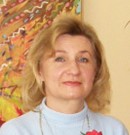|
Plenary
Lecture
Current situation and new possibilities in pharmacology
of parasitic infections

Dr. Gabriela Hrckova
Co-author: Velebny Samuel
Parasitological Institute
Slovak Academy of Sciences
Kosice, Slovakia
E-mail:
hrcka@saske.sk
Abstract: Parasitic worms are exceptionally
successful infectious agents and as many as two billion
individuals harbour these parasites, mostly in
developing countries. Millions of humans are
simultaneously infected with filarie, hookworms,
whipworms, large round worms and /or schistosomes. The
most dangerous parasitic infection of the Northern
hemisphere is alveolar echinococcosis and a closely
related cystic echinococcosis. Only a few classes of
anthelmintic drugs were discovered by an empirical
approach in the last century. Of these benzimidazole
carbamates and praziquantel are still used to treat
various human infections. However, their limited
efficacy against the larval stages of helminths and
increasing drug resistance indicate the need of an
alternative treatment approaches and searching of the
novel drugs among the natural-product extracts. In our
study we focussed on medically important larval stages
of several nematode and cestode species, and cestode
laboratory model Mesocestoides vogae. Our findings
demonstrated that the efficacy of benzimidazole
carbamates and praziquantel can be markedly improved
after their incorporation into suitable drug carriers,
which changed pharmacokinetic properties of drugs such
as short plasma circulation time and the
bioavailability. Application of the immumomodulatory
substances such as polysaccharide glucan and flavonoid
silymarin offered a very effective tool to activate the
host immune defence, which is down-regulated by
parasite-derived molecules. Finally, our approach to
combine drug with natural substance entrapped in
carriers proved to have multiple advantages over the
classical therapy, regarding the drug efficacy and host
pathologyphysiology.
Brief biography of the speaker:
Gabriela Hrckova graduated the University of P.J.Safarik
, Faculty of Sciences in Kosice, Slovakia where she
completed Masterís degree in biology. She achieved PhD
degree in 1993 from the Institute of Parasitology,
Slovak Academy of Sciences of the Slovakia and got
position as research scientist. Currently she is
principal investigator and Head of laboratory of
Molecular and Experimental Pharmacology at this
Institute and the externallecturer at School of Biology
of Faculty of Sciences. Since 2009 she works for private
Pharmaceutical Company in Slovakia as Consultant in
Pharmacology. Her background in the pharmacology of
infectious diseases extends over more than 20 years of
research. She studies the effects of anthelmintic drugs
and natural immunomodulators on host pathofysiology,
cell biology and signalling, modulation of molecular and
immunological pathways and biomarker expression using
multidisciplinary approach. She is author or co-author
of over 55 scientific papers and chapter in
international book on Toxocara nematode published by
CABI Publisher, UK. She regularly presents results at
international conferences.
|
